Top 5 Health Benefits of Rye Bread
Many people prefer rye bread because it has a deeper color and a stronger, earthier flavor than typical white and wheat bread. Furthermore, it has been linked ... read more...to a number of possible health advantages, including enhanced blood sugar control and heart and intestinal health. This article discusses the health advantages of rye bread.
-
Rye bread has high fiber content and an exceptional nutritional profile. The actual composition, however, is determined by the amount of rye flour used, with darker rye bread containing more rye flour than lighter types. 1 slice (32 grams) of rye bread offers the following nutrients on average:
- Calories: 83
- Protein: 2.7 grams
- Carbs: 15.5 grams
- Fat: 1.1 grams
- Fiber: 1.9 grams
- Selenium: 18% of the Daily Value (DV)
- Thiamine: 11.6% of the DV
- Manganese: 11.5% of the DV
- Riboflavin: 8.2% of the DV
- Niacin: 7.6% of the DV
- Vitamin B6: 7.5% of the DV
- Copper: 6.6% of the DV
- Iron: 5% of the DV
- Folate: 8.8% of the DV
Small levels of zinc, pantothenic acid, phosphorus, magnesium, calcium, and other minerals can also be found in rye bread. In comparison to white and whole wheat bread, rye bread is richer in fiber and contains more minerals, particularly B vitamins. Furthermore, studies have shown that pure rye bread is more satisfying and has a lower impact on blood sugar levels than white and wheat loaves.
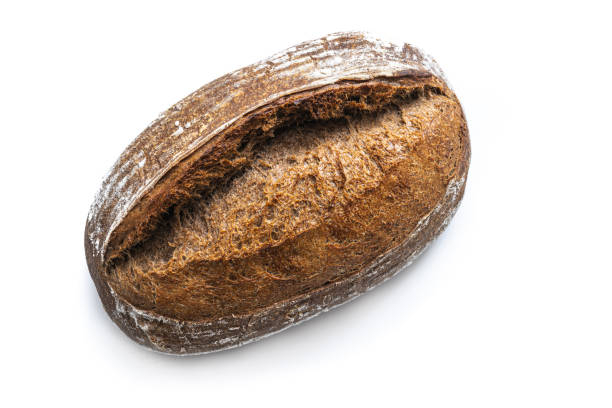
High in nutrients 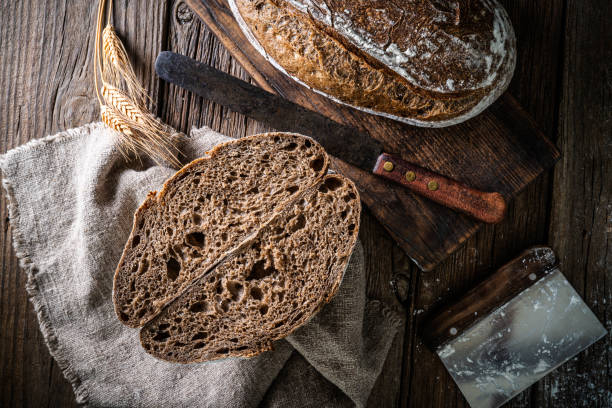
High in nutrients -
Including rye bread in your diet may benefit your heart health in a variety of ways, since research has connected its consumption to reduced levels of heart disease risk factors. 8-week research in 40 adults, for example, evaluated the impact of ingesting 20% of their daily calories from rye or wheat bread on blood cholesterol levels. Researchers discovered that rye bread was more successful than wheat bread at lowering cholesterol levels in males, lowering total and LDL (bad) cholesterol by up to 14% and 12%, respectively.
This impact is most likely due to the high soluble fiber content of rye bread, which is an indigestible fiber that creates a gel-like material in your digestive tract and can assist eliminate cholesterol-rich bile from your blood and body. Regular soluble fiber consumption has been associated with a 5-10% reduction in total and LDL (bad) cholesterol in as little as 4 weeks, according to research.

May improve heart health 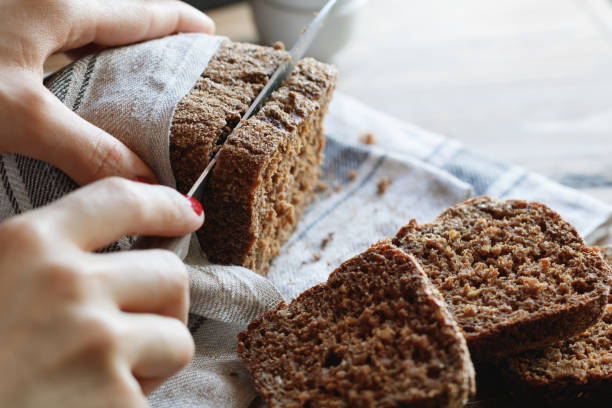
May improve heart health -
Blood sugar control is critical for everyone, but it is especially vital for those with type 2 diabetes and those who are unable to make enough insulin, a hormone that regulates blood sugar levels. Rye bread contains various properties that can help with blood sugar management. For starters, it's high in soluble fiber, which slows carbohydrate and sugar digestion and absorption through the digestive tract, resulting in a more gradual rise in blood sugar levels. Rye bread also includes phenolic chemicals including ferulic acid and caffeic acid, which may block the release of sugar and insulin into the circulation, helping with blood sugar management even further.
A study of 21 healthy people, for example, discovered that eating a rye-based evening meal with extra resistant starch helped decrease the release of sugar and insulin into the system. It also increased satiety hormone levels, which kept people fuller for longer. Plain rye, on the other hand, had no effect on blood sugar levels while increasing feelings of fullness.
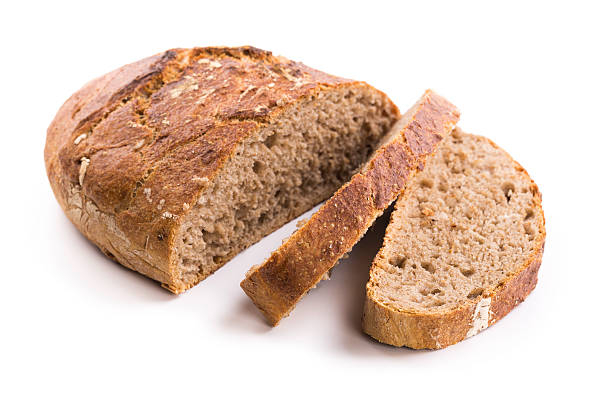
May aid blood sugar control 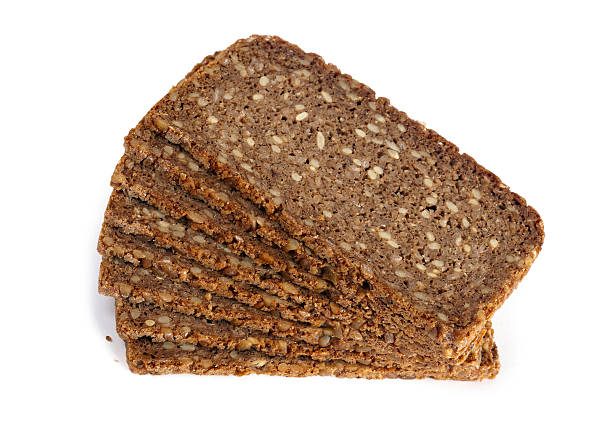
May aid blood sugar control -
Rye bread may benefit your digestive health in a variety of ways. For starters, it's high in fiber, which can help keep your bowels regular. Soluble fiber absorbs water, allowing feces to remain big and soft and so easier to pass. In fact, one research of 51 individuals with constipation found that rye bread was more successful at relieving constipation than whole wheat bread and laxatives, with no negative side effects.
Other research has found that rye bread fiber can raise blood levels of short-chain fatty acids like butyrate. Weight loss decreased blood sugar levels, and protection against colon cancer have all been related to these short-chain fatty acids.
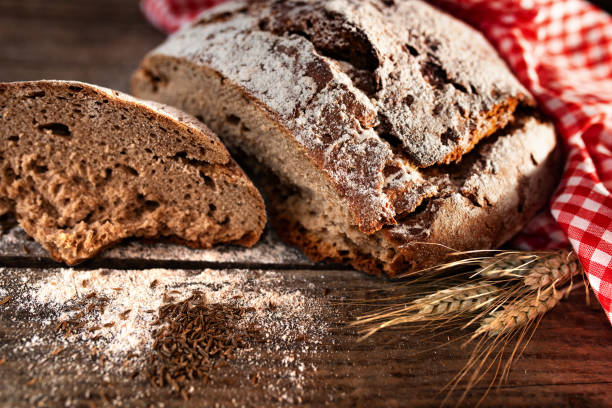
Assist digestive health 
Assist digestive health -
Numerous studies have demonstrated that rye bread is quite full. This might be due to its high soluble fiber content, which can help you feel fuller for longer. Research with 41 participants, for example, discovered that those who ate whole grain rye bread felt fuller and ate fewer calories later in the day than those who ate refined wheat bread.
Aside from the benefits described above, rye bread may provide some additional health benefits. Human research connected rye bread consumption to decreased levels of inflammatory indicators such as interleukin 1 beta (IL-1) and interleukin 6 (IL-6) (IL-6). Rye consumption has been related to a lower risk of numerous malignancies in human and animal studies, including prostate, colorectal, and breast cancers.
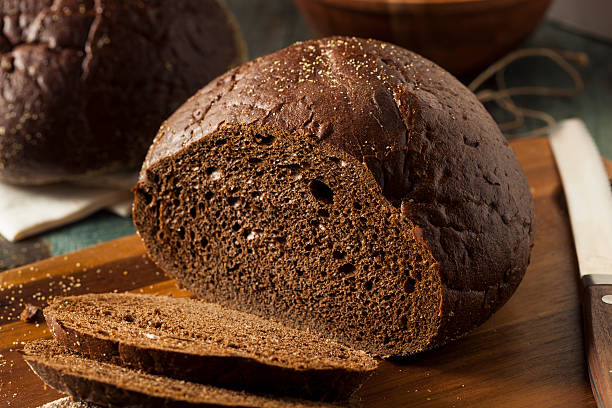
Help you stay fuller for longer and other benefits 
Help you stay fuller for longer and other benefits


























